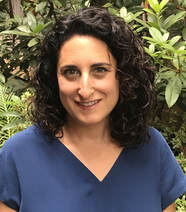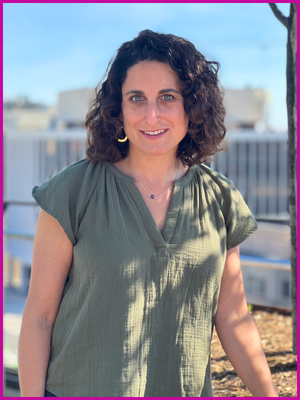 Corinne Dedini Corinne Dedini Towards the end of February 2020, my colleague Liz Katz said to me, “Every student is about to have a really bad online learning experience.” That prophetic statement turned out to be at least partially true. In the spring, most students and teachers had little to no prior practice with online instruction, and the result was an uneven and exhausting experience for both students and teachers. But we’ve seen the upside this fall: schools found out that teachers can shift their pedagogy, students can adapt to a different platform, and online learning can be part of what schools do going forward. The most powerful piece of moving classes online is that it shines a light on the difference between curriculum and pedagogy. Although not entirely welcomed last spring, this was illuminating for administrators who had allowed “good teaching” to be defined by content expertise and the teaching of discipline-specific skills, with little attention paid to school-wide values, the evolution of academic maturity over time, or the transferability of what is taught in a particular course. Schools discovered that if they didn’t have a standard set of pedagogical values to complement their curricular scope and sequence or to align with and measure against their mission, then they couldn’t move to online learning efficiently. This was because they only had one way to teach and assess, and not enough ways to craft or measure deep learning. Online learning strips away the packaging of what’s happening in classrooms. Schools knew teachers were passionate about their subject area and skilled at building relationships with students, but they didn’t know how ineffective their pedagogical approaches could be. Now they know: some teachers had been measuring what they taught, not what students had learned, and students had mastered the art of doing what teachers expected so that they could earn their As. Then COVID-19 hit and teachers suddenly found themselves online, having to intentionally design for learning because online they could only really measure change over time - how the students grew, what they can transfer to a novel scenario, what progress they have made towards mastery. As they built online courses, teachers learned how to move away from content delivery and focus on pedagogy - the experiential side of school. Teachers actually already knew how to do this because they’ve coached your teams, run your clubs, and taken kids on service learning trips. They relied on those design skills to bring learning to life online. One Schoolhouse learned this same lesson when we started eleven years ago, and it’s part of why we think online teaching and learning are so important. As schools ease back into hybrid learning and allow families to dream about the return to full time in-person schooling, let’s not let go of the instructive lesson from 2020: learning happened in novel and trackable ways because students and teachers adjusted pedagogically. This is worth celebrating and holding on to. The ability to design for online learning should become a foundational planning tool for teachers, not because schools need to be ready for the next pandemic or natural disaster, but because it improves learning outcomes.
0 Comments
The patterns and practices of typical schools serve as protective insulation for our students’ well-being. They spend time with peers and caring adults. They get physical activity. They have reassuring routines in their daily schedules. In hybrid and distance learning, most--if not all--of these protections have evaporated. In a study from April 2020, published in the Journal of the American Medical Association, investigators found that students in Hubei province (the epicenter of the COVID-19 pandemic in China) who had experienced school closures and lockdown had a significantly higher incidence of depression and anxiety than the general population. The Lancet published an article, also in April 2020, that described a survey of teens and young adults with pre-existing mental health conditions; 83% of the respondents said the pandemic had made their conditions worse. This information is scary enough at a first read, but it’s terrifying when you realize these articles describe the state of mental illness less than two months into the COVID-19 crisis, and some of our students have now been off-campus for more than three times as long. Knowing how vulnerable our students are right now, what can we do to help? We can focus on the same mission and values that we hold dear every day on campus, and learn the different strategies we use to express them online. There are three key steps that every educator can take to protect their students’ mental health in distance learning environments:
Most frequently, trauma is a discrete event. It has an end: the fire is put out, the car comes to a stop against the guardrails. The COVID-19 pandemic, however, just keeps going, exposing us to chronic stress and anxiety. There are very real consequences for this chronic stress, and there are also resources for individual support. As a community, schools and educators can help to protect our students by providing warmth and structure. Together, we can help our students build the resilience and connection they need to weather the storm. Looking for a dive deeper on more ways to support student mental health this school year? Join us for an upcoming webinar and online course:
1) Listen to the kids! As academic leaders and educators, you have a sense of how students are perceiving their online experiences, but you’ll want to make sure that your assumptions match the students’ lived experience. At One Schoolhouse, we survey students five times a year, using the same questions each time and collecting that data centrally (rather than having teachers “own” the data). This lets us set baselines, so we can measure growth over time (school-wide and on a departmental and teacher basis). We ask students about mission-aligned competencies--things like real-world application, change in worldview, and academic maturity. If the data isn’t trending in the right direction, you’ll know it’s time to ask follow-up questions and make sure that teachers have the support and coaching that they need. 2) Spend some time in the LMS. For better or for worse, online learning is far more transparent than on campus classes. This allows academic leaders to take a deep dive into a course’s online presence. Design and curation are essential elements of top-notch online learning experiences, so they need to be included in your evaluation process. Make sure that: 1) courses are easy to navigate; 2) resources are available and accessible; and 3) students have a clear sense of how the assignments and assessments tie to course competencies and outcomes. For synchronous work, it’s possible to observe a course in real-time, but that practice tends to disrupt the flow of the class. Ask teachers to record a live session so that you can provide evaluation and feedback. 3) Use rubrics to ensure consistency and to create shared understandings of expectations. Creating a rubric for evaluation allows you to identify your priorities for online coursework and sets clear expectations for teachers. In the classroom, lesson design and delivery are almost identical, but in the online space, they’re two very different skills. At One Schoolhouse, we’ve developed a list of standards for both course design and instruction at One Schoolhouse that help us ensure that every course we offer meets expectations and aligns with our mission. To help the independent school community prepare for this school year, we published course standards and teaching competencies for hybrid learning that being used at hundreds of schools. Want to dive deeper into assessing and adjusting your school's hybrid program?
Assessing and Adjusting Your School's Hybrid Learning: Fidelity to Implementation: This school year is continuing to present unique challenges. Now is the time Academic Leaders should be assessing and adjusting their school's response to the COVID-19 pandemic. This course will help you identify key markers of success, establish data-gathering procedures and create communication plans for your hybrid program going forward. Course dates: October 26 - November 1, 2020  Liz Katz Liz Katz Two weeks ago at One Schoolhouse, we took the community's pulse on a crucial question: "How concerned are you about faculty morale this year?" A sobering 92% of survey respondents reported feeling moderately or extremely concerned about their faculty's morale this year, with good cause. A recent EdWeek poll found that “as teacher morale declines, there’s a likelihood of a rise in resignations.” Teachers are exhausted, overwhelmed, and isolated. We’re worried about our teachers’ morale because these are some of the tell-tale signs of burnout, and we’re seeing them on campus and in our video calls. What causes job-based burnout? Chronic stress. You might remember that in June 2019, the World Health Organization added burnout to the International Classification of Diseases. Burnout isn’t a buzzword. It’s a real phenomenon that can take a toll on both physical and mental health. Schools are used to seeing teacher burnout at the end of the year, but October is usually an energized time as school is moving into full swing. This year, burnout is popping up just a few weeks into the school year. That means we need to act now to neutralize the effects of chronic stress. You’ve heard One Schoolhouse—along with dozens of educational and academic leaders—shout “Maslow before Bloom!” over the past six months. Basic needs include safety, love and belonging, and esteem, and we need them in order to grow and learn. That’s not just true for kids; it’s also true for the adults in our community. We need to take care of teachers, and each other, or none of us will be able to take care of our students. There’s a lot that none of us can change about how this pandemic affects our work, but there are ways we can care for ourselves and our colleagues. I keep coming back to the bedrock of all transformational teaching: building relationships. We thrive in communities of meaningful connection. Before the pandemic, that meaningful connection was reinforced by spontaneous and informal moments, in line at the salad bar or in the faculty workroom: “Need to talk?” “What can I do to help?” In hybrid and online spaces, interactions almost never happen serendipitously. To strengthen our relationships with the adults in our communities, we need to develop systems of connections just like we do for our students. I know there’s a fear that creating a system makes these interactions remote and inauthentic. I’d argue with that! If we say that strong relationships are the hallmark of our school, we need to prioritize the time it takes to build them. Humans also tend to build connections most easily with the people who are most like them. Creating a system helps us to ensure we’re connecting with everyone and that we don’t allow bias to infiltrate our networks of relationships. And these systems don’t have to be complex—all you need is some time you reserve to nurture connections and a list of your faculty and staff. Short notes—“I love the video you posted,” or “I’ve been thinking about how the news might be affecting you”—can make a difference in opening conversations and affirming the meaning of the work our teachers do each day. We can’t change the conditions of this academic year, but we can change the way our communities respond and how we take care of each other in the midst of all we face. In schools, we are masterful at building systems that address deficits. Now, we need to turn that skill to supporting our strengths. We’ll survive, thrive, and emerge stronger by taking the time to nurture what matters most: our compassion and our connections. Ways To Engage:
|
Don't miss our weekly blog posts by joining our newsletter mailing list below:AuthorsBrad Rathgeber (he/him/his) Archives
July 2024
Categories |



 RSS Feed
RSS Feed